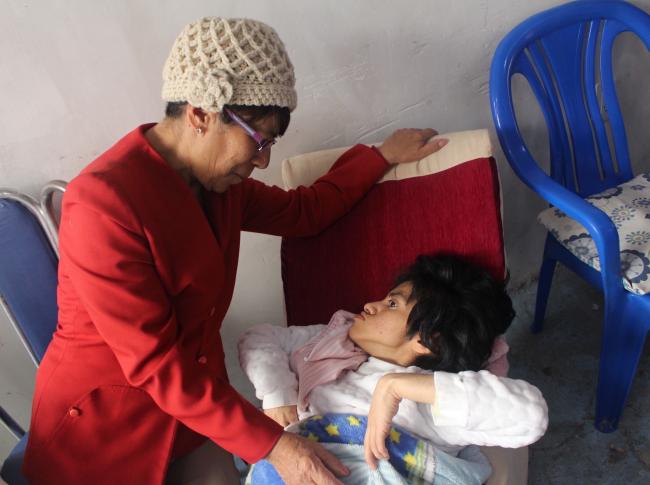To end institutionalization and empower people with disabilities to make change in their own societies.
DRI is committed to preventing the abuses that take place in institutions by promoting the full participation in society by people with disabilities. Through our Global Campaign to End the Institutionalization of Children, DRI has led the international effort to gain recognition that all children have a right to live and grow up with a family. DRI is one of the founding members of the Global Coalition on Deinstitutionalization, bringing together leading disability groups around the world, and we instigated the creation of the Inter-American Coalition on Deinstitutionalization in 2023.
One of DRI’s core goals is to support and collaborate with activists abroad to enforce the right of all people with disabilities to take charge of their own lives and to contribute to matters of law and policy affecting them.
DRI has helped create new disability-run and family run advocacy groups in Hungary, Georgia, Kosovo, Mexico, Serbia, Turkey, Ukraine and Albania. In Argentina and Peru, DRI helped some of the most well established human rights organizations create disability rights programs for the first time.
Mexico - DRI trains disability groups and family run organizations, in their own countries, to advocate for the rights of children and adults with disabilities.

DRI trains and supports partners to report to UN human rights oversight bodies such as the Committee on the Rights of Persons with Disabilities, the Committee on the Rights of the Child (CRC), and the Committee on the Elimination of Discrimination Against Women (CEDAW) to bring about more effective enforcement of human rights treaties.
DRI’s detailed recommendations provide a road-map for reform for governments. We increasingly use our reports at the global level to steer international policy-makers and donors to ensure that funding responds to the needs of people with disabilities – preventing new investments in institutions and supporting community inclusion.
DRI has long history of supporting activist in Mexico, where we are now creating a local affiliate, Disability Rights International -Mexico, run by Mexican disability activists. DRI helped found a new affiliate, Disability Rights International – Ukraine to advocate for the rights of women and children with disabilities in institution, as well as families struggling to keep their children out of institutions. Through our partnership with local activists, DRI is working to ensure that the millions of Dollars and Euros going to help Ukraine in the war protect people with disabilities in danger during the war.
DRI’s newest campaign is to advocate for new legislation in the United States, the International Children with Disabilities Protection Act to create a new US government funding program to support disability and family advocacy around the world to stop the institutionalization of children. The bill will also create a global training program to teach policy-makers, service providers, and activists the skills they need to reform laws and policies to protect families and stop the institutionalization. DRI created a coalition of more than 100 disability, children’s, and international development organizations who have endorsed the bill. In July 2022, the bill passed the United States Senate – and it is now pending in the House of Representatives.
